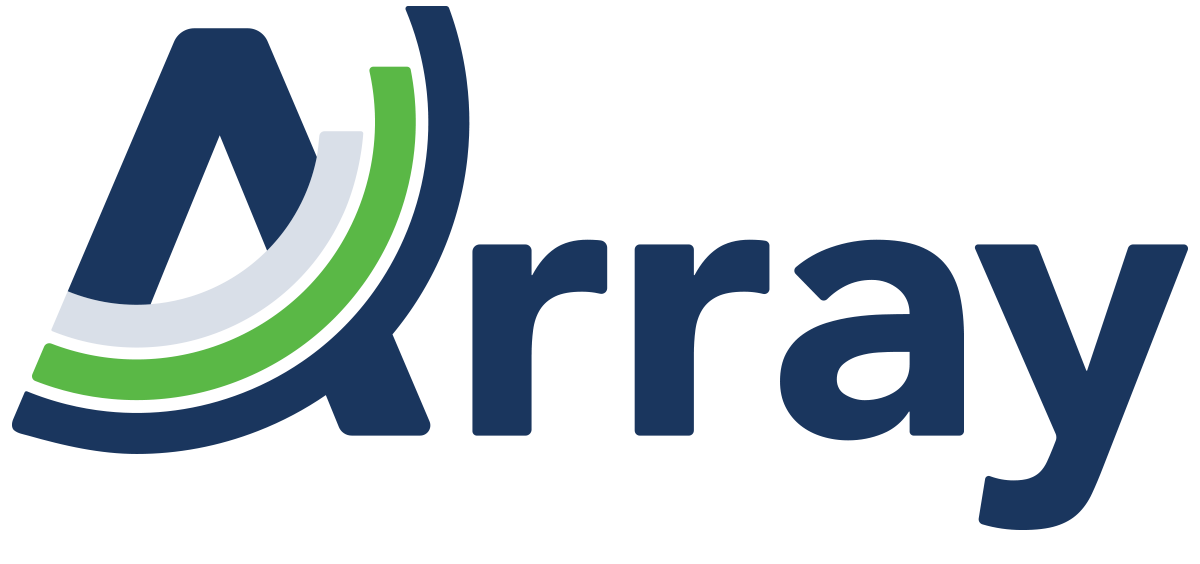Artificial intelligence, unsurprisingly, was among the topics covered in this year’s American Bar Association Innovation Trends Report. As an experiment, the authors of the ABA report produced prompts for ChatGPT to output its top five benefits and downsides of legal technology.
We can’t argue with the five benefits: Increased Efficiency, Improved Accuracy, Enhanced Collaboration and Communication, Access to Vast Legal Knowledge and Information, and Cost Savings. But while we appreciate this was just an exercise in showing how generative AI works, we have some replies to the five downsides. Allow us to showcase how Array’s use of legal tech makes us the right legal operations partner for your law firm or corporate law department’s eDiscovery, managed review, court reporting, contract legal staffing and legal recruiting, traditional services, and records retrieval and subpoena needs.
Initial Costs and Learning Curve
ChatGPT says: Implementing legal technology often requires an initial investment in software, hardware, and training. The costs of acquiring and integrating new technology can be significant, especially for smaller firms or solo practitioners with limited resources. Additionally, there may be a learning curve associated with adopting and adapting to new tools and processes, which can initially slow down productivity.
Array says: Costs are always scrutinized, especially in today’s environment. Before purchasing technology, first determine what efficiency can be achieved through implementation and research any roadblocks to adoption. If the technology can provide value to your law firm or in-house team, proper training and sharing of best practices can accelerate the learning curve.
Reduced Personal Interaction and Client Relationships
ChatGPT says: The increased reliance on technology can sometimes result in reduced face-to-face interactions and personal connections with clients. While technology facilitates remote communication, it may not fully replace the value of in-person meetings and consultations. Some clients may also prefer direct human interaction, and relying solely on technology may hinder the development of strong client relationships.
Array says: We agree that face-to-face connections are valuable. Technology is a tool that can enhance human collaboration and produce better solutions. While Array is a technology partner, we provide a personal touch while delivering our services.
Dependency and Technical Issues
ChatGPT says: Relying heavily on technology means that any technical issues or system failures can disrupt operations and lead to downtime. Power outages, software glitches, hardware failures, or compatibility issues can hinder productivity and create frustrations for legal professionals who depend on technology to perform their work.
Array says: As we said before, Array provides human support throughout our process. Our team has the creativity and experience to prepare for and overcome technical obstacles. That said, our data center runs with 99.99 percent uptime.
Security and Privacy Risks
ChatGPT says: The reliance on technology introduces cybersecurity and data privacy concerns. Law firms deal with sensitive client information, and any breaches or unauthorized access to data can have severe consequences. It is essential to implement robust security measures, keep software and systems up to date, and educate staff on best practices to mitigate these risks.
Array says: We agree with these suggestions to prevent breaches. Our security program meets or exceeds the industry standard requirements. We use a third-party partner to conduct annual audits of all systems and make copies of these reports available upon request.
Ethical and Legal Implications
ChatGPT says: The use of legal technology can raise ethical and legal concerns. For instance, there may be questions around the accuracy and reliability of automated tools and algorithms used in legal research or document drafting. Maintaining client confidentiality and complying with ethical obligations while using technology can also be challenging. Legal professionals must navigate these issues and ensure that they adhere to professional rules and obligations.
Array says: We’re cautious about the use of generative and predictive AI: We have very clear boundaries for what is viable, and what isn’t, for non-human interaction.

